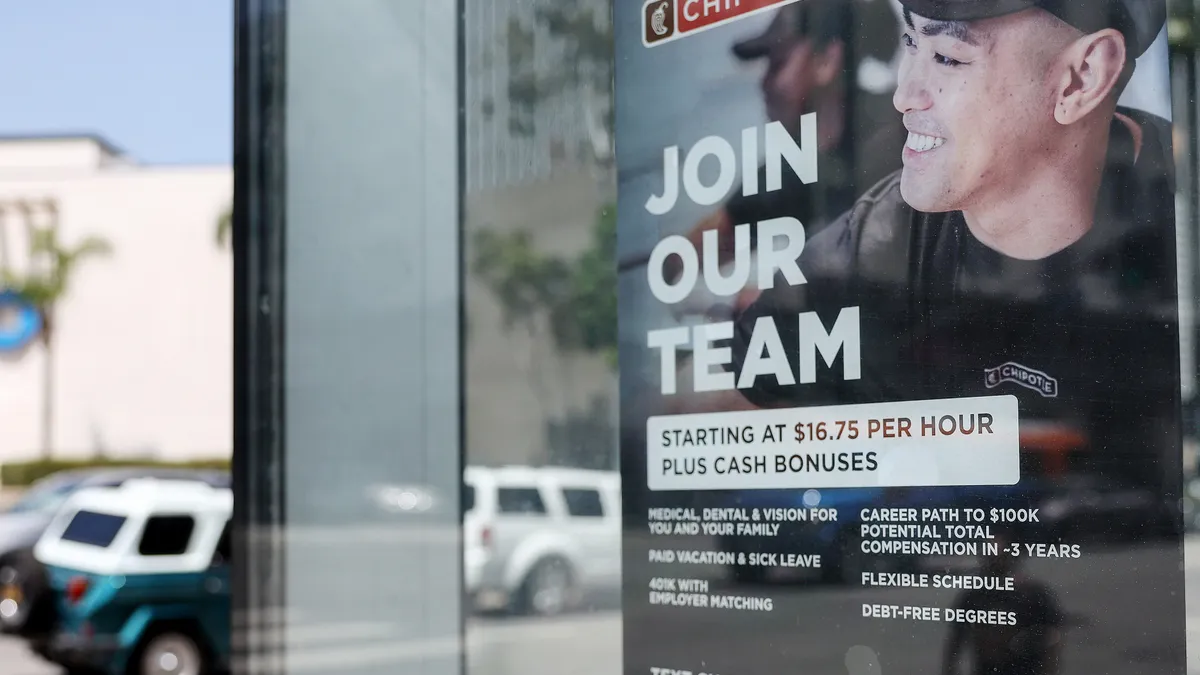At a panel at the National Business Group on Health conference, the director of employee benefits at Costco Wholesale, Donna Sexton, remembered how she felt when she looked into the data on her employees' mental wellness.
The data revealed an average of two suicides a month over an 18 month period.
Her immediate reaction: "I don't know what we're going to do."
Suicide not only deeply, irreversibly affects families, but filters through the whole ecosystem of the workplace, pushing the emotional, social and monetary cost of a single death "way beyond" other problems that may plague a workplace.
The mental health crisis is a "real thing employers are facing," noted Dr. Steven Serra, senior medical director at Aetna. The delivery systems remain fragmented. Even at organizations like Aetna with large networks at their disposal, many employees face six months of wait time before they can meet with a psychiatrist, Serra added. When employees do not receive treatment, it drags down the entire organization on every front of wellness.
The problem: mental and behavioral health issues often appear alongside other chronic problems, including cardiovascular health issues, injury and the like — and equally as often, employees are unaware of the impact of these "comorbidities," especially on their day-to-day work performance.
That means employers will need to follow an old wisdom: Spend more to save more. This technique involves what Dr. Reena Pande, Chief Medical Officer of AbilTo, calls "good utilization," and it requires solid investment — and commitment — by employers in order to create positive outcomes.
Where behavioral health saps money
Depression and its ilk are difficult enough on their own, but they also exacerbate other health problems and make recovery more difficult. Since 50% of Americans deal with some type of chronic health condition, according to Serra, this is no small problem for American employers.
Handling such a problem relies on an employer investing money in the right tools and programs that reach workers — meaning an employer must first have a key understanding of company culture.
Sexton noted that Costco has "high company trust" from employees and focuses on reinforcing a "cost/value conscious culture."
"We don't feel super innovative, but we focus on culture to choose what to take risks on," she added. To maintain that company trust, she knew that meant getting to the bottom of their mental health crisis. Major depression causes a 46.9% loss of productivity dollars per year. Even worse, "presenteeism," also known as "working while sick," causes losses that reach as high as $78.7 billion a year.
"We tip-toe around mental health all the time, but it really matters," Pande said.
Luckily, a focus on holistic wellness, something many employers are looking at, is already a step in the right direction. AbilTo's approach — the approach that Costco bought into — sees behavioral health recovery as part of any health recovery process, and its program includes guidance in social support, exercise, nutrition and sleep.
"Good utilization" comes in when employers are willing to increase their spend on programs that are proactive and seek out employees who may be struggling. Spend on behavioral health goes up, but in turn, employers save on other aspects of employee health due to behavioral health's wide impact. In this example, Serra said, behavioral healthcare was bolted directly onto Costco's health plan and includes active outreach to those most at risk.
The trouble with access
In many cases, behavioral health is "almost a prereq" before an employer can aim for other health solutions, the panelists said. But traditionally, access is a huge problem for behavioral healthcare. To overcome this, AbilTo utilizes remote and telehealth solutions to encourage employees to engage, capitalizing on a strong current trend.
"We make it really hard to get behavioral healthcare at work," Pande said. "We don't want to talk about it." The convenience is a real factor. Being able to obtain treatment at home at any time of the day or week means employees don't have to take time off work or risk "revealing their issues" to anyone, she added. At the end of the day, getting people to treatment is the key.
According to AbilTo, telephonic therapy works just as well, even in randomized trials, as in-person therapy. Evidence also shows strong reductions in medical utilizations after behavioral therapy, including: 31% decrease in hospital admissions, 48% decrease in hospitalization days, 56% decrease in depression symptoms, 61% decrease in absenteeism, 44% decrease in presenteeism and 44% decrease in activity impairment.
Cost is another huge factor. Costco, in a reflection of its values, 100% covers the cost of AbilTo treatment for employees. Sexton said the program has met great success.
"If we can reach 10%, we're happy," she added. "They reached 50% of the women called for post-partum depression." Those who were fine and didn't need treatment were "so grateful" that the company thought to reach out and consider their needs. Those who did need help were caught at a key time, before any problems could get out of hand.
ROI and proof of concept
The struggle to prove ROI in wellness is well-documented and problematic. Many of the modern healthcare applications that presented at NBGH's conference had ROI at top-of-mind, and behavioral wellness offerings are no exception here.
Employers tend to not have seen ROI with similar programs, Pande noted, so "we knew from the outset that we had to prove that."
Due to the 8-week, telephonic model, AbilTo matches more modern expectations of ROI outcomes and is able to provide ROI in six months versus the old, long-term model of 10 years or more. Part of that involves AbilTo's willingness to direct employees to the treatment they need — even if that ultimately isn't in AbilTo's wheelhouse.
Partnerships are key, Pande said, as their strengths can be optimized by integrating the strengths of other providers when needed. This strategy is similar to how concierge services provide benefits, though AbilTo is built more specifically to handle behavioral health cases. They and other behavioral health providers extend a hand of support in order to address a need, using conversation guides to get to the real issues at hand.
While AbilTo uses claims data and other provided sources in order to reach the appropriate employees through phone, email and even texting in some cases, the key is simple: "We actually do it," Pande said.
"We tend to put the burden on an ill person's shoulders, which is not fair," she said. "We have to reach out proactively."






















